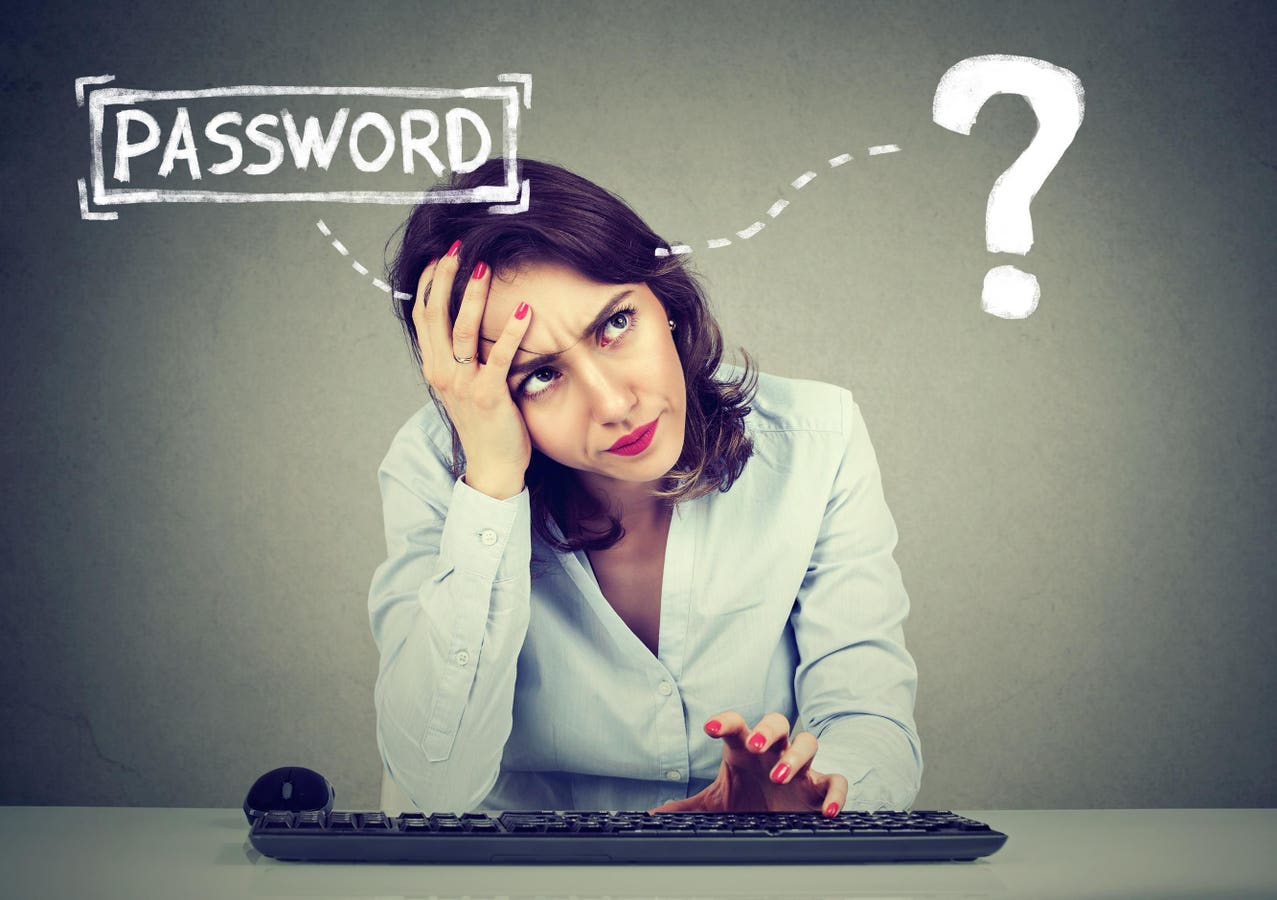I put all my passwords in a text document, then print it on a little strip of paper and shove it up my ass. Whenever I take a crap, I dig it out from the turds and try to memorise some of them again. Then I shove it back up there where noone else can find my data and I won’t lose it.
Ah yes, KeepAss
Spectacular
I’m scared of downloading after that Mexican party
sh.itjust.works
Forgot to mention I delete the text document and set fire to the computer’s hard drive. The passwords are only ever in my ass, with the rest of my personal shit.
Following up your own shit post with another shit post is shit post gold.
This tracks very close to my idea of the suppository flask stick.
Have you ever tried anal, my beautiful gentleman?
Sounds like a security risk.
Maybe, but it would have to be personal and in my ass if I had or ever did.
Bitwarden here. Works well.
No $10 gift card?
Lame.
“Chrome users” or “Chrome under windows users” would be closer to the truth. Still, quite a screw up.
Something like 2/3rds of the world uses chrome for desktop. I’d bet that number is higher for windows specifically. If you’re the rare person who doesn’t use chrome then you’re savy enough to know this doesn’t apply to you
No-one should be using any password manager built into any browser, neither Chromium-based nor Firefox-based. Browser password databases are almost trivially easy for malware to harvest.
Go with something external, BitWarden or 1Password, or if you are entirely within the Apple ecosystem their new password system built into iOS 18 is apparently really good.
Go with something external, BitWarden or 1Password,
When it comes to security software, I usually recommend sticking to open-source solutions, which is why I’d recommend Bitwarden over 1Password. Their whole stack (backend, frontend, and native apps) is all open-source. A premium account is well worth the $10/year.
You can self-host their server, or self-host Vaultwarden which is an unofficial API-compatible reimplementation of the Bitwarden backend designed to be lighter weight. Note that Vaultwarden is unofficial and hasn’t gone through the same security audits as Bitwarden has. It’s a good piece of software though.
Use ButWarden myself for a login-only subset of my KeePass content. I absolutely recommend it every chance I get, but some people prefer 1Password because reasons. And 1Password is pretty much the best closed-source option out there, which is why I do so… anything to give people options that keep them away from clusterf**ks like LastPass.
I migrated from Bitwarden to 1password because I wanted something that works better on Linux. With 1password-cli and PAM integration mainly. Bitwarden worked beautifully under Windows, but once I switched over to Linux, I realised that 1password had more Linux friendly features. I track some discussions over bitwarden that talk about implementing those features, I might come back at some point.
Definitely true… Using 1Password is still better than reusing the same password for every site. I’ve never used it but it gets a lot of good feedback, especially from Mac users.
I use Keepass. Free, secure, great.
I have that as an offline DB. Holds 100% of all creds that can go offline (no 2FA, unfortunately) and a bunch of extra stuff that most other managers aren’t flexible enough to do.
What makes the built-in database easier to attack than a separate one?
What makes the built-in database easier to attack than a separate one?
For performance reasons, early versions weren’t even encrypted, and later versions were encrypted with easily-cracked encryption. Most malware broke the encryption on the password DB using the user’s own hardware resources before it was even uploaded to the mothership. And not everyone has skookum GPUs, so that bit was particularly damning.
Plus, the built-in password managers operated within the context of the browser to do things like auto-fill, which meant only the browser needed to be compromised in order to expose the password DB.
Modern password managers like BitWarden can be configured with truly crazy levels of encryption, such that it would be very difficult for even nation-states to break into a backed-up or offline vault.
It’s protected by the user’s login password. If an attacker can steal that or knows it already, the passwords are all there for them to see.
Bitwarden (on the other hand, for example) has 2FA options to unlock the database.
Oh, so you mean local vs external, not browser-based vs other local solutions.
How does this work if accessing Bitwarden via the browser extension? I don’t like needing to type my master password in all the time as it’s long, so I have the setting turned on that times the vault out periodically, but so it’s also unlockable with a pin rather than requiring the master password every time. I understand the pin is shorter, but does the protection of the vault still stand?
That’s a good question. I don’t actually know the answer to that. I know the passwords are hashed locally when your vault is locked and before being synced, but I’m not sure whether it’s in plaintext when it’s unlocked or if it uses some kind of on-demand decryption. It’s probably in their docs, I should think.
“Here’s what you need to know” - Avoid anything Google.
And backup your password vault
Keepass has been working with no issues
All of them are vulnerable to bugs though. Just a matter of luck.
Which bugs breaks Keepass encryption?
One of the mobile clients corrupted all passwords for me. I ended up losing only 2 passwords, and only 1 I wasn’t able to restore. Good lesson on why backups are important though :)
One of the reasons i use Mega to sync my keepass db across devices where it’s needed. They have version control, so if it gets corrupted then i can restore from a previous version
If he knew, do you think he’d be wasting time talking here about it instead of, I don’t know, ransoming millions of user passwords?
I like to think that most people would just contact the devs privately to get a fix pushed asap instead of ransoming everyone’s passwords.
Right, but my point was that there aren’t public bugs in encryption algorithms just hanging around. Asking for those is categorically bad faith.
Recently started using Bitwarden and it works really well. You can even ditch authenticator because it has OTP built in too.
I selfhost it though because I trust nobody with this type of sensitive data, encrypted or not.
By storing your passwords and otp in the same place it becomes 1 factor authentification
Not really as you’re still protected from password breaches, which is most likely to happen anyways, especially if you self host.
If you’re actively being targeted for your bitwarden password, you likely have bigger problems
deleted by creator
Not if you use 2 factor to access the password manager.
It’s still just one factor. You just secured it better.
To set a scene, you awake in the middle of the night because your phone is making noise. Blearily you unlock it, glance at a prompt, and then approve a login and fall back asleep. The intruder now has access to your password manager!
They attempt to log into your bank and drain your life savings, but despite having your password it sends another prompt to your phone. This time, you wake up enough to realize something is wrong. This time, you deny the prompt.
The entire second paragraph cannot happen if your MFA is a single factor. Don’t store MFA in your password manager!
I mean yeah it’s less secure than if they were separated. But my mom is never going to use a separate app for passwords and 2FA, so the two in one app is still better than nothing.
Bruh, if my phone is sending me notifications in the middle of the night, the first thing I’m doing is uninstalling whatever app is sending me notifications.
If people are that gullible to fall prey to an attack like this, managing OTP in two apps is probably more than they can handle anyway. Everybody has a different threat model, and it’s okay if it’s not covered by hardware passkeys and locally hashed and managed databases.
Technically yes if my vault gets compromised I would be fucked. I have it firewalled tho and only accessible from home (or VPN to home). So should be pretty secure. I used google authenticator but found it a major pita (can’t even search entries on Android, wtf?). If they make this more user friendly I’ll gladly switch back to a seperate OTP store.
I use aegis for the MFA portion.
Modern problems require modern solutions
so no more authy? BITWARDEN HAS THAT BUILT IN??? thats AWESOME
Yep, and Vaultwarden too!
Though the most secure practice is to store them separately.
Alr
The most secure practice for any high-value accounts (email etc) is to use WebAuthn with a hardware key like a Yubikey.
TOTP is still vulnerable to phishing (a fake login page can ask for both a password and a TOTP code) so business/corporate environments are moving away from them.
Sure, hardware keys are superior!
I’m only talking about best practtices when using TOTPs in particular.
It is a paid feature though if you don’t selfhost
The paid features aren’t free if you self-host either. You still need a premium account to use premium features with a self-hosted Bitwarden, unless you modify the code and remove the licensing checks. Licenses are pretty cheap though.
The major features are free if you use Vaultwarden, which is an alternative server implementation.
Oh
But it’s cheap! $10 a YEAR when I last checked.
alr
Yep, for only $10 per year. But just make sure to keep backups of your vault and/or make an emergency kit.
Alr
I was thinking about self hosting but I was worried it would be less secure. I don’t really know a lot about setting that kind of thing up (I do have programming experience but don’t have a lot of server hosting experience outside of doing it for games like Minecraft) and I feel like I’d mess it up and it would be a lot easier to get into than a hardened server. Especially cause the odds I get a virus or something is probably higher then the odds someone breaks into bitwarden’s server. Idk if I’m wrong about this, would love to be corrected if I am, was just my initial thoughts when I switched over from a different password manager to bitwarden.
If you don’t trust yourself 110%, don’t host it yourself. Too risky. I self-host everything, but I leave email and passwords to someone else because it’s just too important.
I think the bigger thing to worry about is, what would happen if your server fails or is destroyed? Would you have a backup of all your passwords? And if yes, are those backups updated regularly and stored in a safe place that also won’t get destroyed if the server gets destroyed (like, say, a house fire)?
Then, yes, you got the cybersecurity angle too
It’s a lot to think about for something as important and fundamental to everything you do on the internet as passwords (and accounts)
backups aren’t that big of a deal with bitwarden as every client keeps a copy of the database that can be restored.
It’s pretty easy to setup using docker, you do need to know that ofcourse and how to setup dns and stuff.
I have it firewalled so my vault is not accessible from the internet, only from home or vpn to home.
And it can also store passkeys to effortlessly sync between desktop/Android/iOS
A friend has a notebook next to her computer with all her passwords in it. Initially I was horrified - what if you’re burgled? - but actually it’s genius. Much more secure than letting a browser remember them, and she doesn’t even need to memorise a Bitwarden password.
In a household it’s probably not that bad. There aren’t many people breaking into homes looking for account details.
I’ve had my identity stolen several times, and every single time it was stolen from a Fortune 500 company.
I just make all of my passwords password123 then I don’t have to worry about memorizing them
*********** that’s what I see
Really? hunter2
Yeah, when you type hunter2, all I see is *******
Ah, my girlfriend’s approach. No matter how much I show her a pwned password or set her up on my Vaultwarden, she’s not interested
Yeah, these newfangled password requirements ruined my life. I refuse to sign up for any website that doesn’t let me use hunter2.
Just add the same memorized bit to the end. Something simple like “123” would work. Even if the book is stolen it won’t do them any good.
Kind of like salting.
This concept is also known as Double Blind Passwords or Horcruxing.
That’s an excellent idea! I’ll mention it to her.
It’s a primitive password manager, primitive because unencrypted and not integrated into your devices, but far better than not having a password manager.
Assuming the laptop is running bitlocker (often on by default), has a user password, and is offline, that’s pretty decent.
Notebook refers to a paper notebook. Not a laptop.
And in which world is bitlocker on by default? Nope.
A world where we all go insane from explaining “we can’t just ‘hack’ your bitlocker key” over and over to every older relative we have…
My mom told me that she was made fun of for having a book of hand written account credentials related to running her business (6 people total). I told her it was the best way to do it that wasn’t massively overcomplicated for her situation and to keep it up. The only recommendation I made is that she use different long passwords for every site since she’s already not memorizing them.
Personally I’m not convinced this isn’t the best way unless you’re being targeted by physical bad actors
What if the notebook gets destroyed or lost, though? That’s my biggest concern here
Premium Bitwarden is so cheap and effective that I find it difficult to justify using an alternative.
Keepass with syncthing is completely free and doesn’t rely on cloud hosting
Still. Back it up
Not a bad idea to back up to a json, but every computer you’ve used has a local encrypted copy you can export from using the app or extension.
Well sure… I have a local offline encrypted copy, rather than a whole separate password manager.
I self host my own Vaultwarden instance (a bitwarden server written in Rust) and it’s more reliable than Google’s password manager.
I use encfs and sync it to dropbox etc. Then use gopass password manager to store password in the encfs folders. Not fully auto-integrated but good enough for me.
No password manager is 100% safe. Make back-ups.

feel like “aaand it’s gone” would fit better here
That’s definitely a change from companies just leaving passwords around for anyone to find.
Me when I don’t use Chrome, I don’t use Windows, and I don’t use browser password saving either
Switches to Proton Pass
I switched to Pass recently after having used Bitwarden for a couple years. I’d say Bitwarden still has a slight edge in terms of features, but Pass has gotten good enough and it’s included in my Proton subscription.




























